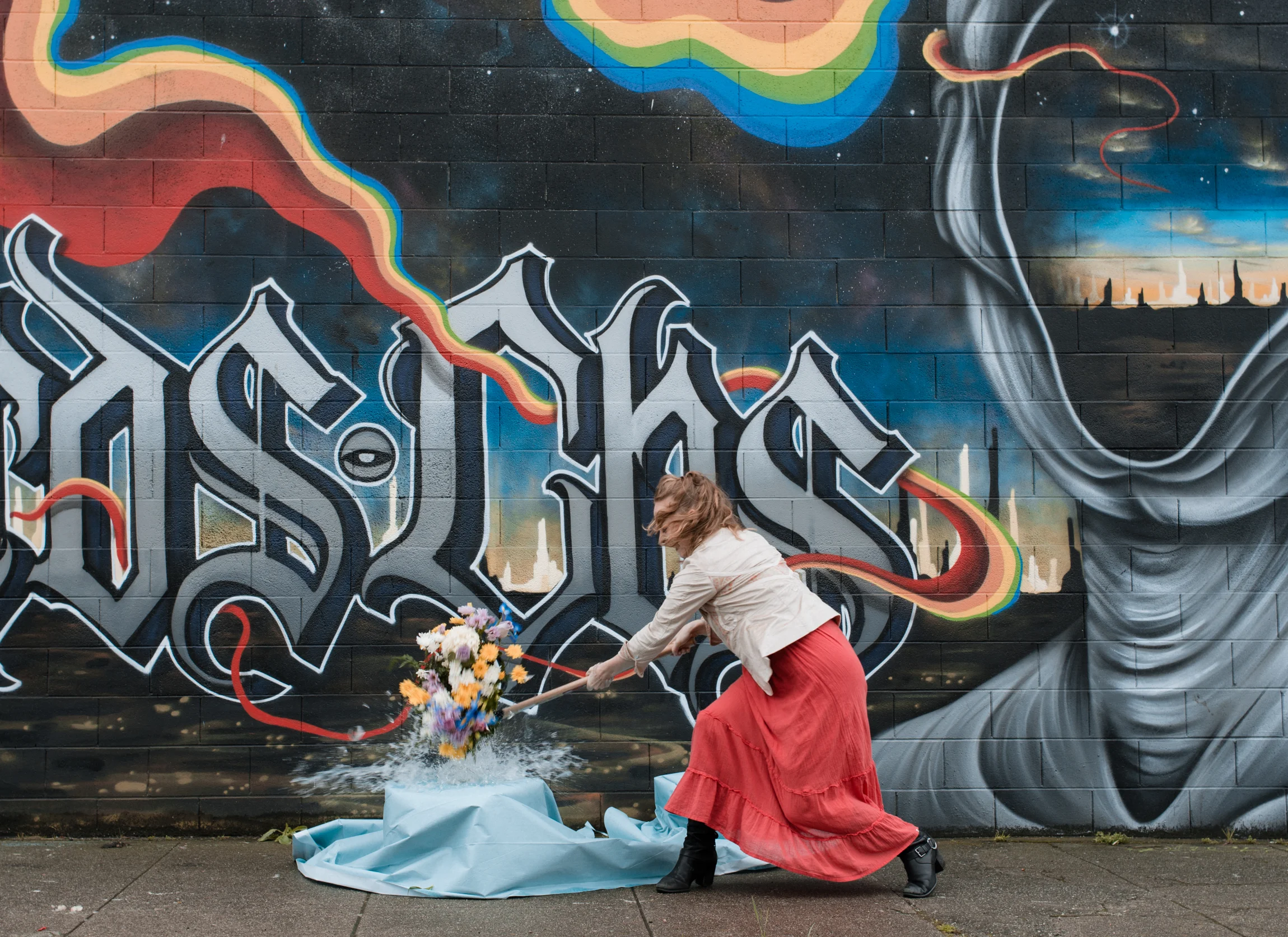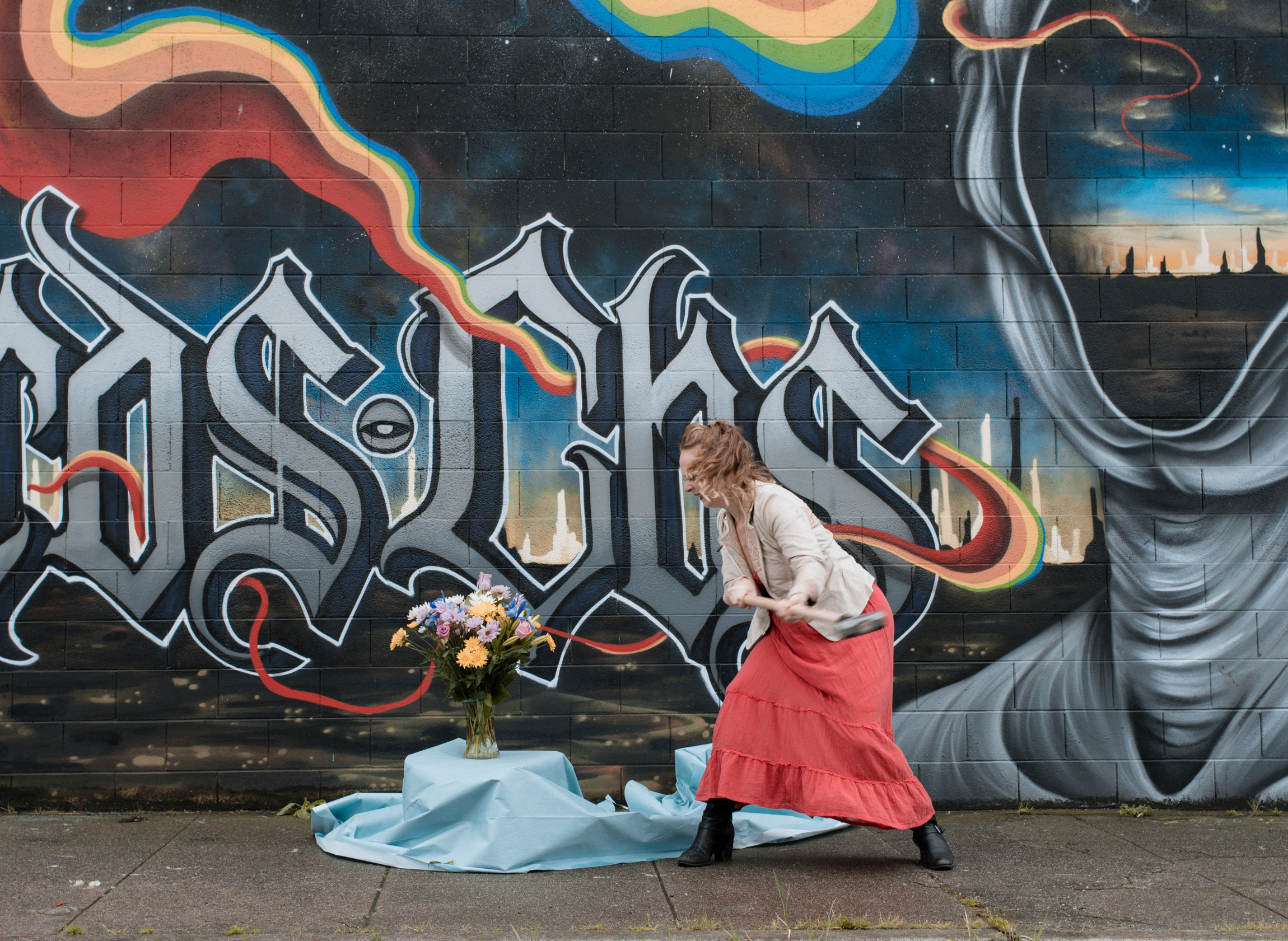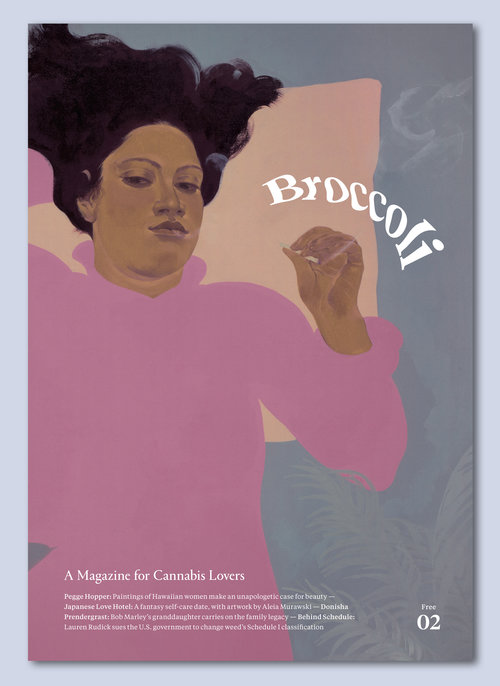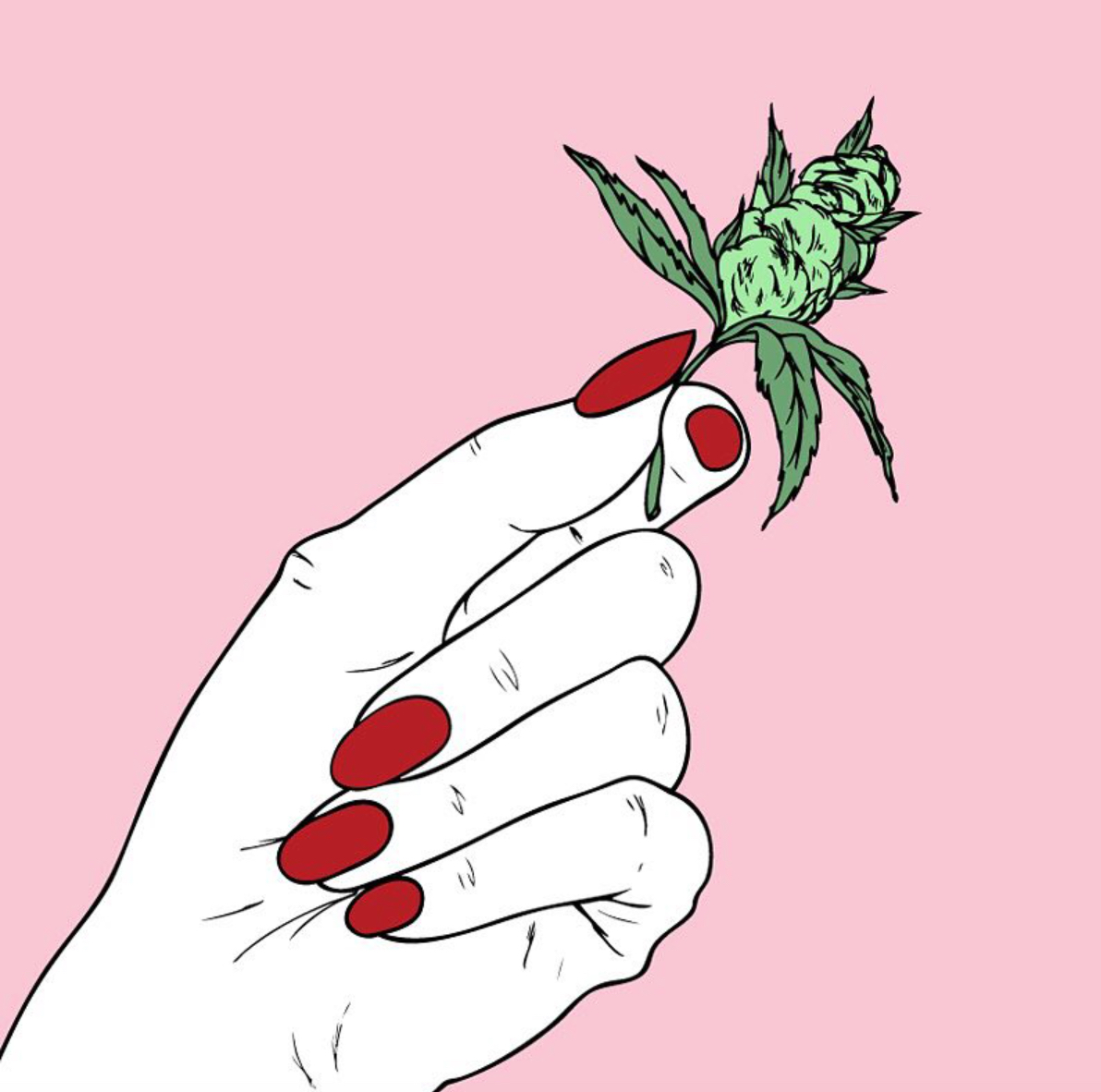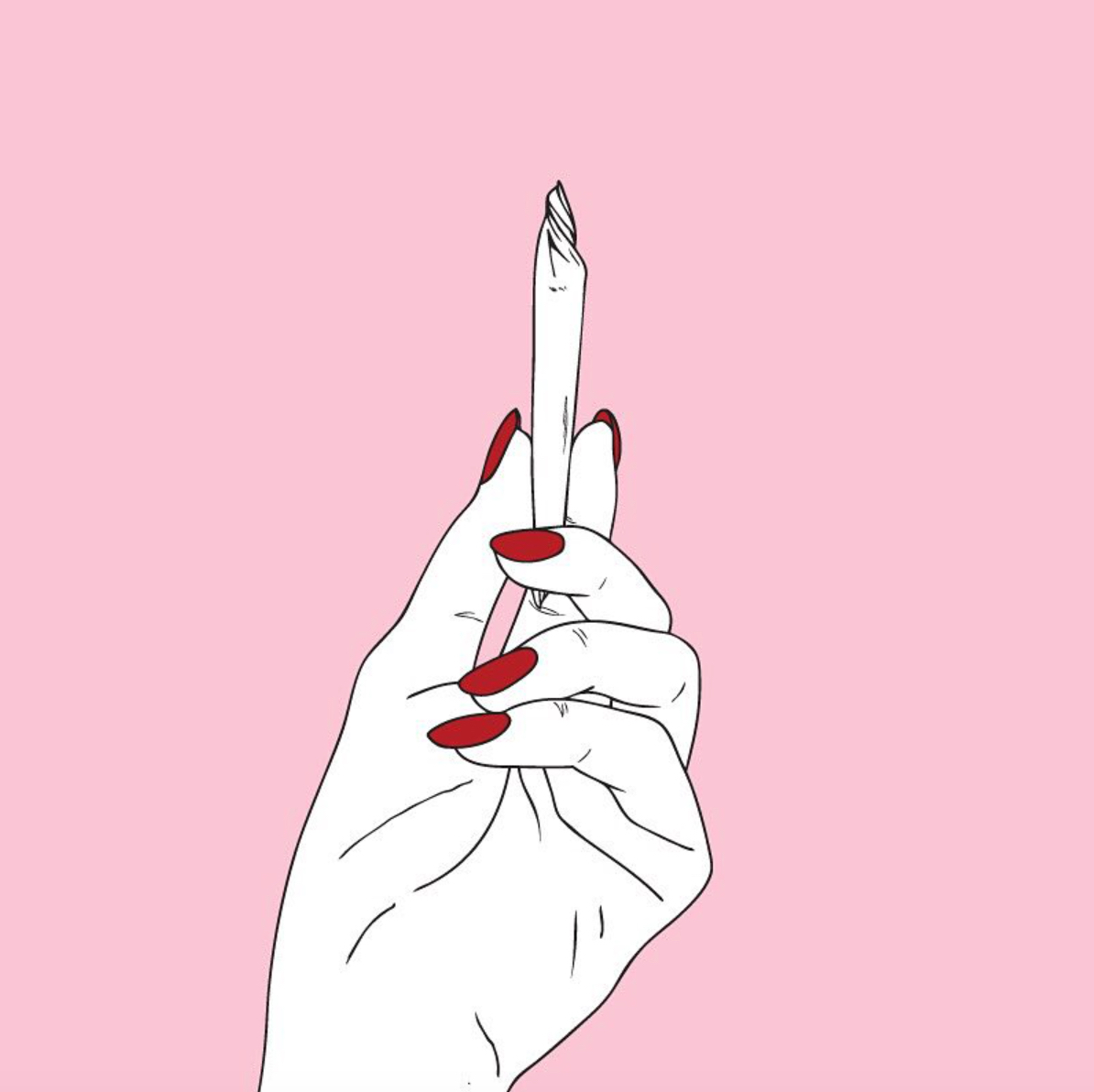Green Queen: Why Women in Weed Have the Power to Change Everything
Puff, puff, pass this article to a friend.
Let’s be blunt.
Jazmin Victoria Hupp co-founded Women Grow, the largest professional network in the cannabis industry. Since its launch in 2014, Women Grow has connected over 25,000 entrepreneurs at events in 45 cities across the US & Canada. The organization hit $1 million in revenue in 2015, with no outside funding.
Its focus is to connect and empower diverse people to launch national cannabis businesses and to serve diverse customers. Hupp herself is a self-described feminist who once told Edibles Mag, “I love the real meaning of feminism and I am angry the word has been f***d with by people who don’t believe that women and men should be equal.”
Again. Blunt.
She told us, “Women are better than anyone at working within a system that wasn’t created for their benefit.” Can’t say we disagree. And it’s why she’s a Green Queen, through and through.
Find out more from the founder below.
There’s a lot of water cooler talk about how legal marijuana could be the first billion-dollar industry not dominated by men. How does Women Grow factor into this? So, Women Grow is dedicated to “creating and cultivating”—women to be leaders of the cannabis industry. Why was it important for you to focus solely on women?
Women will purchase the majority of marijuana products after full legalization and the end of marijuana stigma. Marijuana is known for being a medicinal product, a wellness product, and a recreational product. On the medicinal side, women make the vast majority of medical decisions for their families and purchase 92% of over the counter medicines. On the wellness side, women are the prodimineent buyers of wellness services like yoga and acupuncture. On the recreational side women purchase the majority of wine & liquor that will be consumed at home. Women are desperate for a sugar-free and low calorie alternative to alcohol. As the stigma around marijuana ends, you’ll see women switch from a bottle of wine to a vaporizer at night. So since women will be the dominate purchasers of marijuana, it turns out that other women are best equipped to create the marijuana products and buying experiences that women want. Additionally operating a marijuana business today requires navigating a complex system not created for your success and it turns out women are better than anyone at working within a system that wasn’t created for their benefit.
I focus on women because they are the greatest untapped resource on this earth. They are already installed everywhere but working at half their capacity. When you upgrade the women, you upgrade the lives of everyone around them.
"I focus on women because they are the greatest untapped resource on this earth."
2015 you held your first summit. What was that like? What did you see that was inspiring?
Women Grow’s first summit was for just 125 women in the mountains of Colorado (the event has since grown to over 1,000). The black market of cannabis required business owners to be secretive and isolated from their peers. They had few people to ask questions or get support. We heard some stories from women in emotionally and physically abusive work relationships that had no one to turn to when what they were doing was illegal.
After legalization, women in weed were able to come out of hiding. By placing these women in community they were able to share knowledge and support for the first time. And we were able to take everyone through hours of business education to fundraise for their company. Now I get to attend office openings and anniversary parties of many of the companies founded after that first event. It’s an amazing feeling to see the staff of six women hired by one woman who sat in the front row of the event.
How has your business changed the last three years?
I ran Women Grow as CEO for the first two years and wow did I ever have a hero complex. I hated to see people struggle so I would give people the answers instead of mentoring them through the learning curve. So Women Grow expanded quickly to 66 cities and 3 countries but that growth wasn’t sustainable. I had built an large system that was dependent on me instead of creating independent leaders. This is one of the core reasons that we contracted when I left my role as CEO. I’m excited to see how Women Grow will blossom under Dr. Chandra Marcias, Gia Moron, and Kristina Garcia.
I also didn’t anticipate that many women had more experience fighting against each other than helping each other succeed. In my experience, women have a culture of destructive gossip that cycles negativity between each other. Instead of bringing feedback to the person who we’d like to challenge, we bitch to our friends about it.
Why do you think it’s important to decriminalize weed?
Cannabis (aka weed, pot, marijuana) is one of the safest and most effective plants we were gifted on earth. Our body naturally produces cannabinoids (the elements within cannabis) to regulate our body. When your body’s regulation is off, cannabis can supplement.
Cannabis is also one of the most flexible medicines, specializing in many of the symptoms women suffer from most. I use cannabis to fall asleep at night, to reduce inflammation in my body after yoga, and to balance my stomach when I eat the Standard American Diet.
Women Grow had no outside funding. What did you know about launching a business?
I caught the entrepreneurial bug as a kid and started launching websites at age 11. I started running theatre productions shortly after that and theatre teaches you a lot about running a business. You’ve got to pick your strategy (the play), hire your team (casting), get everyone to work together (rehearsals), sell tickets (marketing & sales), and deliver your product (opening night). Most companies never get to delivering their product so theatre was a great container to practice that cycle with lower stakes.
While I was in college for theatre, my computer broke and so I took a job at Apple for the employee discount. At age 20, I transferred to an independent Apple store called Tekserve in New York City and got a deep dive on every shade of a sales, repair, and consulting business. As an internal entrepreneur at Tekserve I got to create new offerings within the container of an already operating business. I got great at the creation, marketing, and launch of new things but was never responsible for operating what I created for more than a year. During that time I was also a director at Women 2.0, helping women become VC-backed founders with events in dozens of cities. Through Women 2.0 I was immersed in equity funding and Lean Startup methods.
"When your body’s regulation is off, cannabis can supplement."
In the Spring of 2014, my grandmother died and I took a few days off to reexamined my life purpose and what I was contributing to the world. Cannabis had just been fully legalized in Colorado and Washington so I decided to visit Denver for the first legal 4/20 celebration. I went to a huge event with a hundred different cannabis businesses and only met one female business owner. I realized that in this new blue ocean, women could have an unfair advantage in what would become a care-based industry. With that in mind, I met Jane West, who had already started to organize female business owners in Denver and we launched Women Grow in August of 2014.
For new entrepreneurs, what is your advice for starting?
We launched Women Grow with about $26,000 in founding memberships. Instead of going to investors for our startup capital, we went directly to our customers, female entrepreneurs, and built the business to about a $1M in revenue. The challenge with going to investors early is you have to immediately start serving two masters, what your customers want and what your investors want. By building the initial business on just customer revenue, you are more likely to create a business aligned with what your customers want before confusing it with investor advisors. You’ll also be able to get much better terms for those investments when you have a proven model versus them funding an idea on paper.
Starting your company based solely on revenue ensures that you scale your expenses with your revenue. If you use your outside funding for operating costs, you often end up in a situation with a high burn rate (money spent exceeding your revenues) and a ticking clock that forces you to raise even more money before you’ve proven your product works. Instead prove you can deliver something your customers want at a low cost and then raise funds to market the fuck out of it. Most companies raise money before getting that product fit correct and burn through it.
So many women are struggling at work. They’re burning out. You create happiness through a practice of yoga, meditation, cannabis consumption, and self-love. Can you chat about how these practices have improved your quality of life?
First I had to realize that my inner reality was creating my outer reality. By that I mean if I felt scarce, I would experience scarcity in my business. If I felt in flow, I would experience flow in my business. I stopped taking a salary from my company for the last two years to focus on self-work to work on myself and clear out the inner debris.
We all know that working out your physical body improves how your body functions. What I found is that I also had an emotional (a.k.a. energetic body) that needed just as much care. I tried dozens of practices and my current favorites are: meditation, Kundalini Yoga, Emotional Freedom Technique, ecstatic dance, sanskrit chant, and cannabis-infused baths.
This summer I’m launching a new company based on this self-work, called Rage Palace. Rage Palace is an event for women to release anger and workout their emotional bodies. We’re bringing together dozens of local practitioners to lead women through activities from sledgehammering a car to dance to crying on a grandmother’s shoulder. We’ll launch in San Francisco this summer and then tour the event as we perfect the formula.
What’s an exciting product you’ve seen hit the market?
I’m loving Treatwell’s Wellness & Balance tinctures. These are non-psychoactive, meaning they don’t get you “high” but give you all the benefits of cannabis for your body. It’s like taking the vitamin you didn’t know your body was missing.
You were named a genius entrepreneur. What’s it like to be called a Green Queen?
Honestly I don’t get called a Green Queen by anyone but reporters, they love puns. [editor's note: it's true, weed do.]
What’s your proudest accomplishment to date?
Losing 60 pounds by changing everything in my life that made me want to overeat instead of following some silly diet. I realized that food was my go-to comfort substance. It kept me awake and made me feel better in the short term. In the long term it was masking how I was abusing my body to make money. We hired a new CEO for Women Grow and I spent a year pulling apart all my bad habits. Losing weight wasn’t even a goal, it just naturally came off as I stopped compromising myself.
What do you hope to see from women in weed?
Everything. Women in weed have the power to change our workplace cultures, our medical outcomes, our wellness practices, and even how we party on Friday night. I’m excited to see how replacing alcohol with more thoughtful substances might lead to a decrease in sexual assault. I’m excited to see how commercial hemp can replace fossil fuels in every instance where we’re using non-renewables. I’m excited to see how living in alignment with nature could be.
What would you consider your superpower?
I can tell what you need before you even know you need it. Basically, I can read people and anticipate their needs. It’s what makes coming up with new businesses so much fun because I can make stuff that you hadn’t thought of, but once you see it you know you need it.
Want more from the cannabis culture? Check back on our Green Queens series in partnership with MISSBISH. We'll be featuring a woman in weed per week!
Want even more? Register to participate in the Slack Session co-hosted with MISSBISH. Green Queens in the Cannabis Industry is going down April 25th at 6:30 PST, mark your calendars and sign up here.
MORE FROM OUR BLOG
Green Queens: How Anja Charbonneau Is Changing Cannabis Culture
Just what does it mean to be a Green Queen?
Photography by Shola Lawson: www.shotbyshola.com
For Anja Charbonneau cannabis is still uncharted territory. And her crowning achievement, the print mag Broccoli, is at once a sensory experience and a fresh look at cannabis through the lens of art, culture, and fashion. Anja and her team are reinventing the stoner image. The pothead image. The smoker.
Toss what you know about weed out the window and consider this a full paradigm shift. Shipped free with a Broccoli subscription the first issue trained its eye on features such as weed ikebana arrangements, hand-blown produce pipes from Humble Pride, and Yacht singer Claire Evans.
The second, fresh off the stacks, newly released issue, features grower-turned creative Mennlay, artist Aleia Murawski, the lawyer Lauren Rudick, and the activist and filmmaker Donisha Prendergast. To name a few.
It also happens to be a magazine created and run entirely by a team of women and non-binary people. “Broccoli’s focus on women is two-fold. Behind-the-scenes, we’re a woman-owned business with an all-female team, and our contributors are all women or non-binary people,” Anja says.
Read more from the Green Queen below.
Tell us about how Broccoli magazine came to life…
Prior to starting Broccoli I was the creative director at Kinfolk, making books and magazines for the brand. I fell in love with publishing, and as the legal cannabis market was growing around me I noticed there was a gap for a beautiful, forward-thinking magazine in the space. After three years at Kinfolk I was ready for a new project, and I wanted to run my own business, so Broccoli is now my full-time gig. We’ve had an overwhelming response to launching the first two issues-- it’s incredibly motivating to suddenly be part of a massive community of women around the world who are interested in weed.
Today more than ever, legalizing marijuana seems to be at the top of the list in most political debates. Why do you feel weed should be legalized?
Cannabis isn’t as divisive as one might expect, in terms of political viewpoints in America. In fall 2017 a new poll was released that shows a majority of Republicans are actually in favor of legalization. Legal cannabis creates a lot of jobs, generates a lot of tax revenue, and there’s more and more proof that cannabis can be a very effective tool for reducing opioid use and provides new treatment options for many different medical conditions. The real work has to happen after legalization, when states are creating laws around who can get into the business. Cannabis prohibition has majorly harmed communities of color for decades, jailing people over the most minor offenses, and then in many cases these people are prevented from getting into the legal industry because of having a criminal record or not having access to the same financial resources that an investment group might have. Every step in legalization is a change to make up for this, to do better as we move forward. We believe in legal weed because it’s just a plant, and it’s one that helps a lot of people. Everyone deserves the right to have safe access to cannabis, without being judged.
Anja says,"
It’s incredibly motivating to suddenly be part of a massive community of women around the world who are interested in weed.
The magazine is directed specifically towards women, why did you choose women as your target audience?
Broccoli’s focus on women is two-fold. Behind-the-scenes, we’re a woman-owned business with an all-female team, and our contributors are all women or non-binary people. This is really rare in media, and we’re proud of it. Through our content, we are highlighting women and their relationships to cannabis, featuring women who work in the cannabis industry and those who don’t. We want to see women taking up as much space as possible in the cannabis space, so that we can grow the industry and culture in a positive way.
“We want to see women taking up as much space as possible in the cannabis space, so that we can grow the industry and culture in a positive way.”
Broccoli is free and will be distributed only three times a year, how were you able to make this available for no charge? Can you explain your business model?
We believe strongly that cannabis should be accessible, and this belief carries over to media as well. By offering a free magazine we’re encouraging more people to interact with Broccoli, which in turn will spark more conversations about cannabis. The magazine is funded entirely by brand partnerships, so we’re aligning with companies (both within and beyond the cannabis space) who share our vision to normalize cannabis. There’s a lot of creativity and innovation coming from cannabis entrepreneurs as the industry blossoms, and we’re excited to provide a platform for sharing their stories.
You chose to showcase the art and culture of cannabis, how does this differ from other weed-friendly publications?
Most existing cannabis magazines focus on the industry and feel very male-dominated, which can be alienating to a more casual user, or someone who’s just curious about weed. Broccoli celebrates cannabis while also acknowledging that it’s just part of our reader’s life, and it fits in to a whole constellation of creative interests. By connecting cannabis to art, fashion, science, food, wellness, design (or a myriad of other topics), we’re reframing weed overall, and showing that it’s already connected to many beautiful and necessary parts of life.
“Cannabis prohibition has majorly harmed communities of color for decades, jailing people over the most minor offenses.”
Who is a woman in your life you admire?
Lately I have been thinking a lot about Bjork. She is a creative powerhouse, and while she’s primarily a musician her magic transforms across mediums so easily. I have a lot of respect for how outspoken she is about her experience as a woman in the creative industry, and for how open she is to experimentation and weirdness. She also has an amazing, bizarre sense of humor and it comes through in everything she creates. I love that! She’s a genius but also hilarious.
Want more from the cannabis culture? Check back on our Green Queens series in partnership with MISSBISH. We'll be featuring a woman in weed per week!
Want even more? Register to participate in the Slack Session co-hosted with MISSBISH. Green Queens in the Cannabis Industry is going down April 25th at 6:30 PST, mark your calendars and sign up here.
MORE FROM OUR BLOG
Find Out Why Women Are Running the Weed Industry
And meet the cannabiz pro getting women alllll the jobs.
graphic credit: Moon Bacon
Karson Humiston is the founder of Vangst— the cannabis industry's largest and leading recruiting resource. Since launching in 2015, her company has successfully connected over 3,000 skilled workers with jobs.
It’s an industry that’s growing. And that is incredibly exciting for Humiston and other women who are getting in at the ground level.
Humiston has always had that entrepreneurial kick. When she was younger her family lived on a golf course. At night, the budding business woman would head out with a bag and collect golf balls. She’d clean them and sell them back to the golfers the following day. “I convinced the kids in my neighborhood to help too. They set up second stands and I would pay them.”
So how did she go from manicured greens to the green industry? The same as other entrepreneurs— she recognized a need and the ability to fill a void. A new report from New Frontier Data projects that by 2020 the legal cannabis market will create more than a quarter of a million jobs. The legal cannabis market was worth an estimated $7.2 billion in 2016 and is projected to grow at a compound annual rate of 17%.
That’s a lot of jobs in an economy that has seen better days. And what does a growing industry need? Recruiters. Good ones. Huminston is great.
We caught up with the impresario to talk cannabis, job creation, and why there are so many women at the top of the weed chain.
Can you tell us a bit about how you got started, the backstory of what led you down this career path? For some, it’s certainly not an obvious choice.
When I was in college I had a student travel company. After I sold my student travel company I realized I had a really big network of students and recent grads. I was trying to figure out what these group of people needed. I realized they needed jobs. And an industry that was very interesting to me because of the high growth and career opportunity potential was the cannabis. industry. I went to career services [at St. Lawrence in upstate New York] to get their general sense on the cannabis industry. They were horrified. They were not interested in helping people find jobs in the cannabis industry, helping alumni find jobs or current students. So I went to a cannabis trade show to do a little of my own investigating and was blown away by the types of jobs that were available. From accounting jobs, marketing jobs, cultivation jobs, there were a ton of jobs and there was no source to help people find jobs in the space. So I literally graduated and got in my car and drove to Denver where I didn’t know anybody. I had no place to live. I lived in a hotel for the first half. And I started the company first focusing on young professionals in the cannabis industry.
"
I started the company first focusing on young professionals in the cannabis industry."
So how did you make those first connections because weed is legal in Colorado but not in a lot of other states. How did you break down doors?
So the business used to be called ‘Gradjuana,’ which was connecting college students and recent college grads with cannabis jobs. Like I said I was at the trade show and I pitched myself as being with Gradjuana. I said, “Hey I have a huge network of college grads and recent grads. I'm a college grad myself and I had this other company that allowed me to help build this huge network for other people. So I could help you find your next entry level person for just a small fee.” At that first trade show I spoke with everyone at every booth asking, “What positions are you hiring for?” With anything entry level I would send it out to my personal database. People would apply and I would interview them and check their references from past on campus jobs and then connect them with the company. So when I moved to Denver, to be honest it was a door-to-door strategy I didn’t have the money for some huge marketing campaign. I would walk into dispensaries or people’s offices and say, “I’m Karson with Gradjuana and I heard you’re hiring an intern,” — even if they weren’t. And they would say, “Actually we’ve been talking about hiring an intern can you help us?” I went all in that summer, connecting a lot of interns and recent grads with cannabis companies. In September a company came to me and said they needed a technical writer, construction project manager, and an executive assistant. They didn't want entry level, but someone with 5-7 years with experience. They said, "We are paying our current search firm 20% of annual salary, you obviously don’t seem to know what you are doing so we’ll give you 8% if you can find these roles." At that point a huge lightbulb went off in my head and I decided to take a risk and go out and hire my first two recruiters.
How long have you been in business now?
Two years ago we realized there was an opportunity far beyond interns and recent grads. That’s when we rebranded to be a full search firm. Fast forward, now we are a team of 25 employees. It has really grown a lot since door to door intern placement. I got my first official placement on July 12, 2015. I'll never forget it. Her name is Kiara and it was an intern placement for Open Bake.
So it’s been almost exactly two years to date? I assume the bulk placements are happening in states where the industry is legal…?
I can’t believe it’s been 2 years. Right now 29 states have legal medical marijuana and eight states are recreationally legal. What is really interesting for our business is that a lot of clients are out of state.
Why is that?
So for example, a group in Maryland is awarded a license. So they need to hire some experts from within the industry. They’ll engage us to pull a director of cultivation to relocate from Colorado. Someone who understand how to grow cannabis in a potentially a 50-1000 square foot growth facility. Who understands how to come in and build the SOP, who can write the training manual,who understands compliance, how to source the equipment, how to source the nutrients and relocate their expertise to Maryland. We’ve chosen to stay in Colorado because this is where we started, we still have an awesome client base here but with that said about 40% of our clients are outside Colorado. A lot of them are in states that are just coming up.
Do you ever experience push back from the community? Especially in places where it's not legal?
Honestly, the community has been super receptive to it. One of the things we’re doing this year is we’re throwing some career fairs in different places and it is such a job stimulator. There are currently 125,000 people employed in the states and we’re supposed to get up to 250,000 by 2020 —- meaning there will be more jobs created in cannabis than manufacturing. Look at Colorado, their unemployment rate is less than 2% right now. Not only is it creating a ton of tax revenue but a ton of jobs.
Even though it’s a relatively new industry, it’s hard to argue with numbers. We recently spoke with a female grower who said it’s interesting an interesting time because it is new and profitable. Women can get in at the ground and grow a career as the same rate a a man. Are you seeing any kind of gender split in applicants or placements?
Since it is a new industry there are so many opportunities for people to get in on the ground floor. And because we live in an age where women are so empowered, they are taking this opportunity of a leveled playing field to start companies. It hasn’t been predominantly run by men for the past 100 years. I think we’re all kind of starting at ground zero like you indicated earlier. I think that is awesome. So, last month of the people we placed in jobs, 63% of our placements were women. And at our company we have 19 female employees six guys.
"Last month of the people we placed in jobs, 63% of our placements were women."
Tweet this.
You seem pretty fearless and willing to put yourself out there. Have there been any moments of doubt?
Yes of course. I think there are always times when you get to the end of a crazy week and you’re sitting there thinking, “Holy cow what am I doing?” But then I look around and we have helped over 3,500 people get jobs, we have 25 great people who work here, and we are doing a lot of really cool things that are paying off. But I’m from an East Coast conservative family, friends of my family are pretty conservatives, and many parents told me that if I did this, it was going to ruin my career. I’ve always been inspired to be in politics some day and many of them said, “You’ll never have a shot to be in politics, this is going to be the biggest mistake of your life.” Hearing that from people I’ve looked up to my whole life, I remember on the drive out here sort of feeling sick to my stomach, questioning if I was making the right choice, asking myself should I turn around and go back and find a job in Boston or New York like everyone else I know? And those types of moments don’t stop just because it’s working well now. I am now committed to the idea, which I think is a huge piece for anyone who is an entrepreneur to commit and stick through it and stay confident along the way. I know where we’re going and so far it’s working. I need to stay confident and things will continue to work out.
Arianna Schioldager is Editor-in-Chief at Create & Cultivate. You can follow her @ariannawrotethis.

